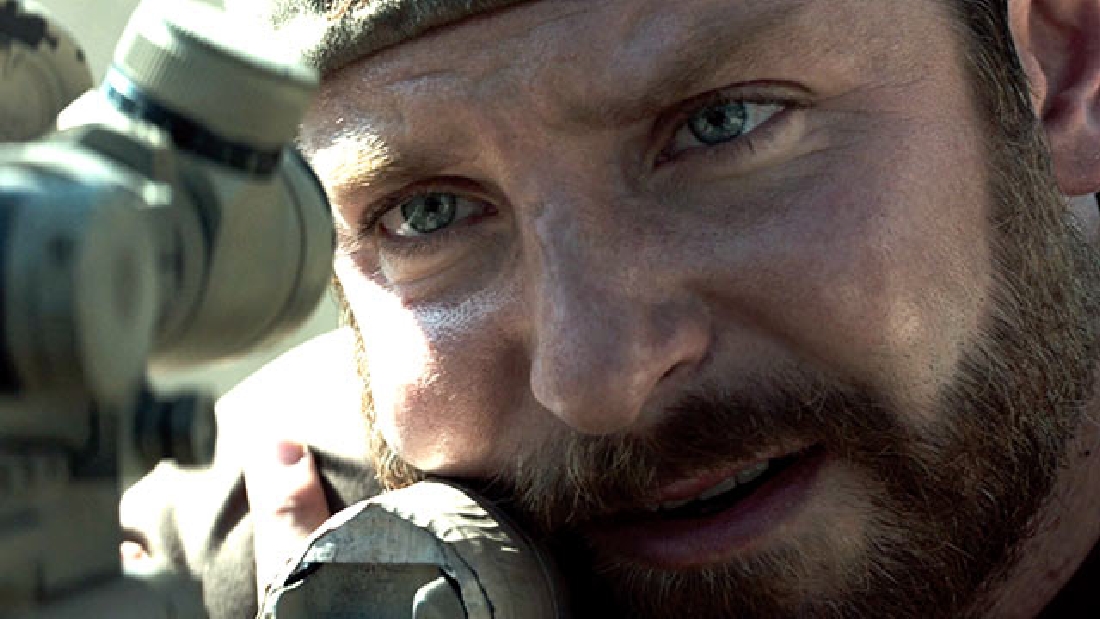It has become a depressingly familiar ritual during awards season: movies based on real-life events being picked apart by professional trolls and op-ed writers. With the prestige pictures comes the carping. The Imitation Game downplays its subject’s homosexuality. Selma makes Lyndon Johnson more of an obstacle to civil rights than he was. Foxcatcher ignores John du Pont’s schizophrenia. It’s enough to drive me back to The Hobbit, where no one is complaining about the historical accuracy of the elves’ costumes. With Clint Eastwood’s American Sniper, however, the Truth Squad has a point. The movie’s omissions in the story of Chris Kyle are so egregious that they undercut what could have been a great war film and turn it into an ethical quagmire.
The real Kyle was a Navy SEAL from Odessa who served four tours in the Iraq War and had 160 confirmed kills out of 255 probable ones. His actions in combat won him a chest full of medals, the nickname “Legend” from his fellow soldiers, and a hefty bounty on his head from Iraqi insurgents. After his honorable discharge from the military, he counseled other soldiers suffering from PTSD. He was doing this when he was murdered 23 months ago in Glen Rose by a fellow soldier whom he was trying to counsel.
The movie is based on Kyle’s 2012 autobiography, which is riddled with unsubstantiated claims about killing looters during Hurricane Katrina and punching Jesse Ventura in a bar fight. It also has some unseemly boasting about how much fun he had killing Muslims. Director Clint Eastwood and writer Jason Hall entirely ignore this, which is weird, because they haven’t turned the film into an empty-headed paean to American badassdom. They seem to want to give a nuanced picture of what it is to be a soldier. Before the material in Kyle’s book, though, they quail.
Too bad. They could have done something with Kyle’s dark side, whether they ultimately decided that he was a violent psychopath who fell into the right job or a hero who said bad things or just a guy trying to cope with the stresses of a perilous, vital job. Instead, we’re given conversations between Chris and his wife (Sienna Miller) that are strictly low-grade soap opera.
What’s left is a movie that does a pretty good job of depicting PTSD, especially through Bradley Cooper’s performance as Kyle. He has a great scene during a party at Chris’ house in Texas — the air is filled with the sounds of children playing, but Chris can only sit and stare at his TV’s blank screen while trying to shut the screams of war from his mind. Here Cooper does one of the hardest things an actor can do: Hold the screen while staying still. Another scene has a fellow soldier who’s missing a leg thank Chris for saving his life, and the look on Chris’ face tells you how little comfort he’s taking from this. These parts of American Sniper are impressive for their hard-earned honesty. Shame about the rest of it.
[box_info]
American Sniper
Starring Bradley Cooper and Sienna Miller. Directed by Clint Eastwood. Written by Jason Hall, based on Chris Kyle, Scott McEwen, and Jim DeFelice’s memoir. Rated R.
[/box_info]













Wow! A fabulously balanced review that did not just go with the tide. For once a review that made me think and see other perspectives. Thank you for your insights. I agree that there are real wasted opportunities to have made the audience think more deeply. One does not need an easy answer.